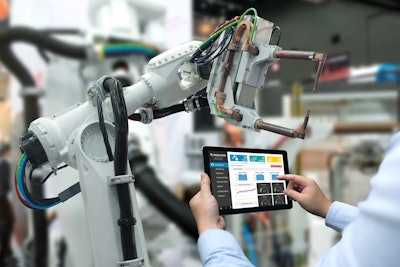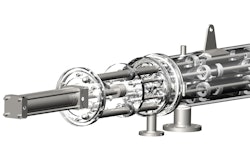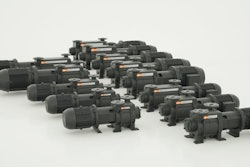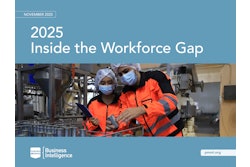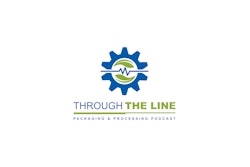Discussion surrounding advanced manufacturing reveals the struggle many companies have with mountains of data and the challenge of turning this resource into actionable information. More responsive data analytics is needed for production line operators as enterprises move past rote operator duties and focus more on exception-based routines.
The good news is that the food and beverage industry is taking action. In PMMI’s 2017 Trends in Food Processing Operations, predictive maintenance is being used by 64 percent of the 150 respondents. During a recent food and beverage panel discussion at the Manufacturing in America (MiA) conference, Dave Greenfield, director of content/editor-in-chief at Automation World, said, “Food, beverage and consumer packaged goods companies want to manage, analyze and transfer data from all of their equipment in all of their locations. They want a more holistic and historical, as well as a real-time, predictive view of what’s going on in their operations and plants on an enterprisewide basis.”
The panel discussion also included Cameron Cane, president of turnkey brewing equipment company Deutsche Beverage Technology. “One thing that we see with craft brewers is the move to increase output without having to [station more] people at their process or double the size of their plant,” said Cane. “They like to automate processes as much as possible.”
Deutsche Beverage provides remote monitoring of equipment and IT services for brewers by sending components and tags and rewriting software fixes as needed. For its customers, there’s no information technology/operations technology (IT/OT) debate due to smaller brewery staffs and the need for quick analytics.
“We can remotely log into their systems and access our engineering resources more efficiently to diagnose issues and add new equipment to their location without ever having to show up,” said Cane.
A related trend is value-added services from original equipment manufacturers (OEMs). OEMs are moving forward in this Industrial Internet of Things (IIoT) era by providing more services, be it partnering with a cloud analytics company, working with the end users, or creating more responsive operator and maintenance troubleshooting. Tetra Pak unveiled its augmented-reality service concept in 2017.
“Last year, we partnered with Microsoft on HoloLens, mixed with reality headsets, and are revolutionizing our diagnosis and resolution service,” says IIka Dunder, digitalization director at Tetra Pak Service. “Our model includes a Tetra Pak engineer at the manufacturer’s site and then a remote specialist, and both can see the machine in real time.”
Tetra Pak says its customers are using increasingly complicated equipment to ensure consistent food safety and quality, and machine issues have become significantly more complex for the engineer to manage.
“In previous years, a machine issue that required specialist knowledge would have the on-site Tetra Pack engineer connect with a specialist via phone, email or wait for them to travel long distances to resolve this issue,” says Dunder. A recent example cited by Dunder reveals field service engineers at a dairy producer, where they were struggling with distribution equipment on a filling line. With the Tetra Pak service engineers using the HoloLens headset technology, an off-site specialist was able to identify the defective parts in a time-expedient manner.
Tetra Pak piloted the service in 2017 with 50 HoloLens devices in the Middle East, Europe and Americas, with a broader expansion of this program underway now.
Many food and beverage companies are taking the plunge with digitization projects, and more are sure to come as better traceability, unit-of-one consumer demands and, of course, production line optimization drives enterprises in 2018.
